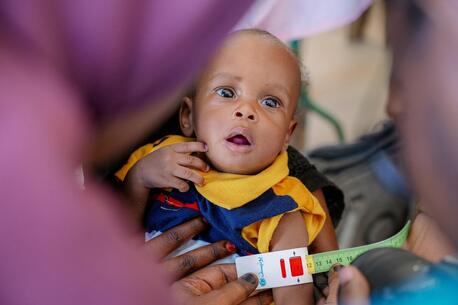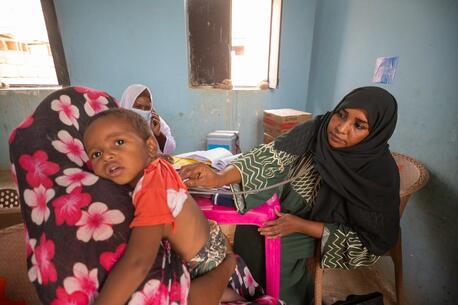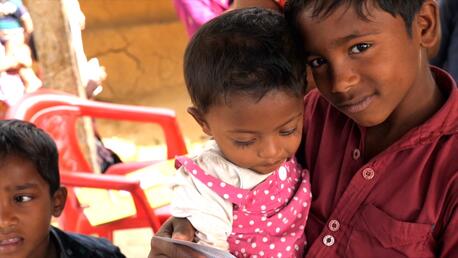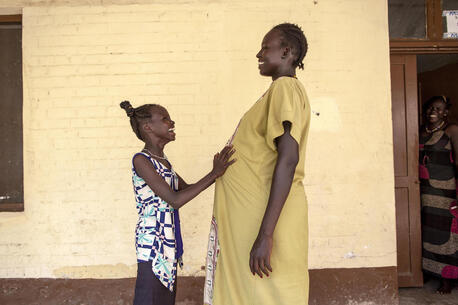
UNICEF Launches Multi-Country Push to Improve Maternal Nutrition
UNICEF and partners are stepping up efforts to ensure equitable access to nutrition services and care in 16 countries where malnutrition risks are highest among pregnant women and adolescent girls. The new Improving Maternal Nutrition Acceleration Plan to Prevent Malnutrition and Anemia During Pregnancy promises to go a long way toward protecting children's health and well-being too.
The vision: a world where women and girls realize their right to adequate nutrition before and during pregnancy and while breastfeeding
Despite important progress in advancing the rights of adolescent girls and women around the world, inequitable access to nutritious diets, services and care practices persists — which means that maternal malnutrition also persists.
Roughly 36 percent of pregnant mothers, or some 32 million women, suffer from anemia, primarily due to iron deficiencies and lack of other essential nutrients in their diets.
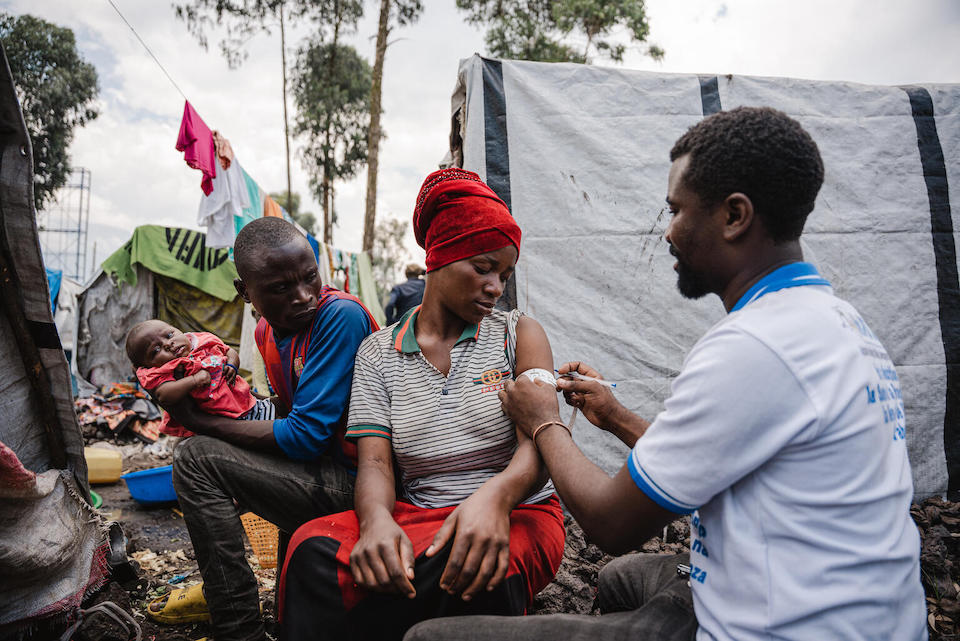
Improving maternal nutrition helps give children their best start in life
Nutritional anemia and micronutrient deficiencies during pregnancy and breastfeeding are not only a threat to a woman's own life and health — increasing risks of potentially life-threatening complications during childbirth — they also increase the risks of stillbirth and newborn death.
A child born to a malnourished mother is more likely to suffer from childhood stunting, wasting and long-term health complications that can profoundly, negatively impact their physical and cognitive development, learning and overall potential into adulthood.
An acceleration plan to reach 16 million girls and women in 16 countries with a package of essential services
On March 14, UNICEF unveiled Improving Maternal Nutrition: An Acceleration Plan to Prevent Malnutrition and Anemia During Pregnancy, a strategic framework for reaching 16 million girls and women across 16 countries with a package of essential nutrition services by the end of 2025.
The 16 countries — Afghanistan, Bangladesh, Burkina Faso, Ethiopia, Madagascar, Mongolia, Myanmar, Nepal, Nigeria, Pakistan, the Philippines, Rwanda, Somalia, Sri Lanka, Tanzania and Venezuela — have three things in common: a high prevalence of anemia in adolescent girls and women, a high prevalence of low birthweight in infants, and an enabling policy and program environment.
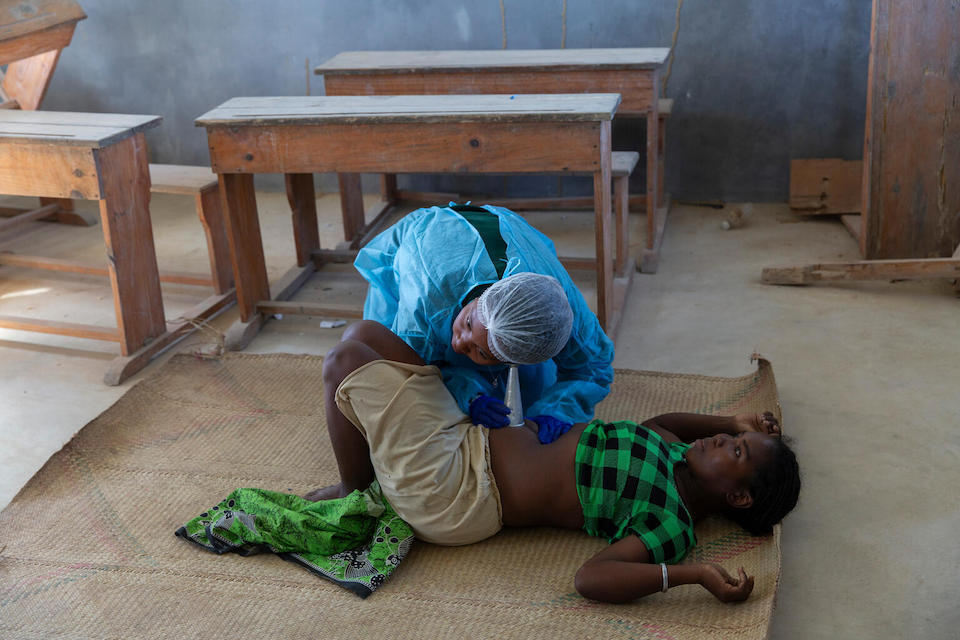
For UNICEF, the plan represents a potential game changer for tackling the broader global nutrition crisis. It promises to advance gender equality — poor nutrition has been linked to lower learning and earning — and break the intergenerational cycle of poverty.
Related: Q&A with UNICEF Nutrition Specialist Harriet Torlesse
Education, screening, multiple micronutrient supplements and more
The plan provides a roadmap for scaling the delivery of a package of essential nutrition services as part of antenatal care for expectant mothers, including:
- nutrition information, education and counseling
- healthy weight gain monitoring
- multiple micronutrient supplements
- deworming prophylaxis and malaria control if appropriate
- nutrition screening and referral for treatment as needed
Multiple micronutrient supplements are particularly cost effective for preventing maternal malnutrition and improving birth outcomes. Packed with 15 essential micronutrients, these supplements, when taken during pregnancy, protect the health of both mother and baby — lowering the risk of low birth weight by up to 19 percent, of pre-term birth by 7 percent and of stillbirth by 8 percent.
A full course of micronutrient tablets, enough to cover an entire pregnancy, costs approximately $2.20. UNICEF, which already supports their procurement and distribution through its supply division and country-based health and nutrition programs, will continue working with governments and local partners to ensure they are more widely available.
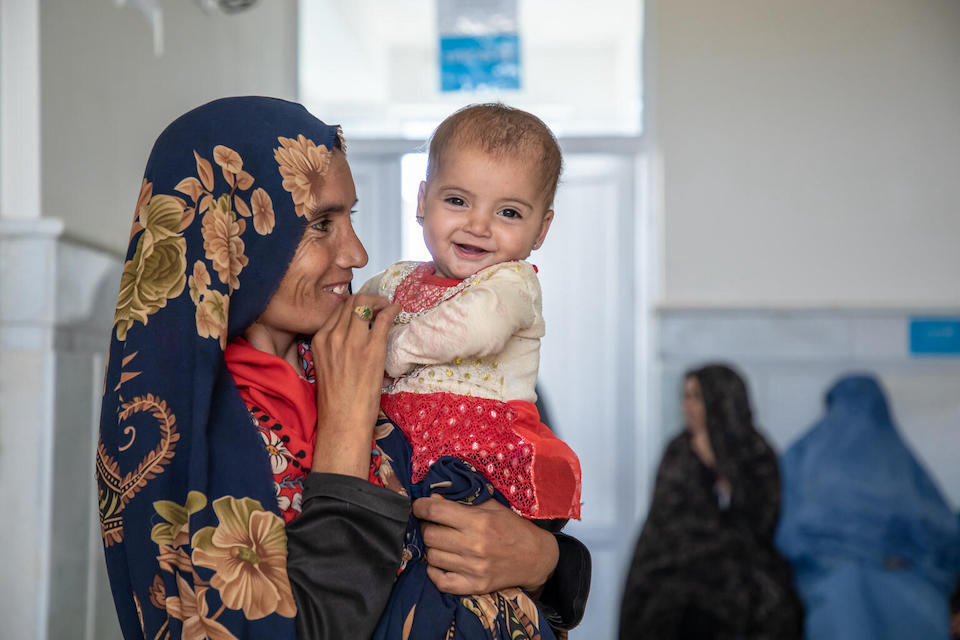
Promoting proven policies, building capacities across health systems to ensure maternal nutrition programs are sustainable
To support the plan's implementation, UNICEF will continue collaborating with governments and other partners to help integrate the delivery of these essential services across health systems through advocacy and policy action, capacity building, community engagement, finance mobilization and other means.
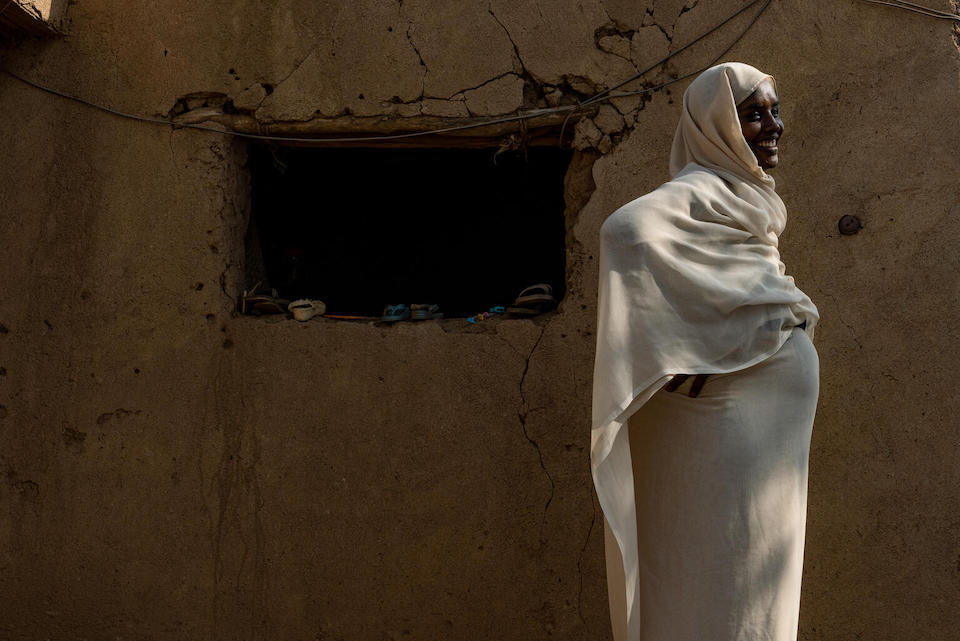
"With a package of essential nutrition services in antenatal care, we can improve women's health, and we can address inequality by offering the poorest and most vulnerable women the same standard of prenatal care as women in wealthier communities and countries," UNICEF Executive Director Catherine Russell said.
"With this plan, we want to ensure that pregnant women realize their right to good nutrition and give their children the best chance to survive, grow and develop to their fullest potential."
Every girl and woman has a right to good nutrition. Prioritizing maternal nutrition is a strategic investment in the health and prosperity of future generations.
Help UNICEF and partners keep working towards a future where every woman and child has access to the nutrition and care they need to thrive. Donate today.
HOW TO HELP
There are many ways to make a difference
War, famine, poverty, natural disasters — threats to the world's children keep coming. But UNICEF won't stop working to keep children healthy and safe.
UNICEF works in over 190 countries and territories — more places than any other children's organization. UNICEF has the world's largest humanitarian warehouse and, when disaster strikes, can get supplies almost anywhere within 72 hours. Constantly innovating, always advocating for a better world for children, UNICEF works to ensure that every child can grow up healthy, educated, protected and respected.
Would you like to help give all children the opportunity to reach their full potential? There are many ways to get involved.



